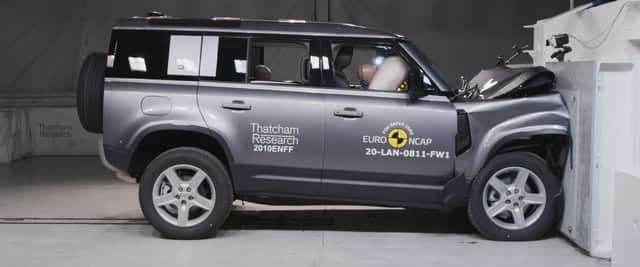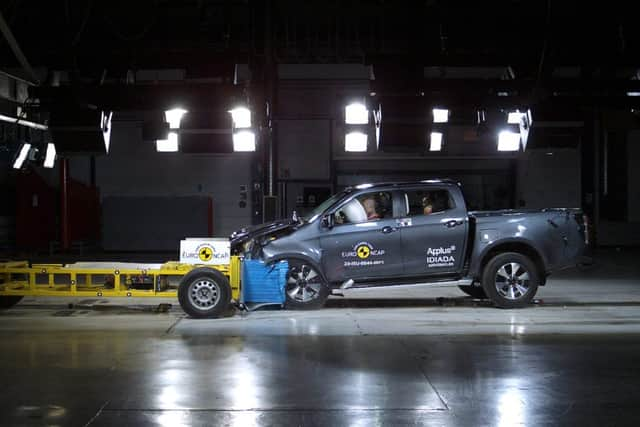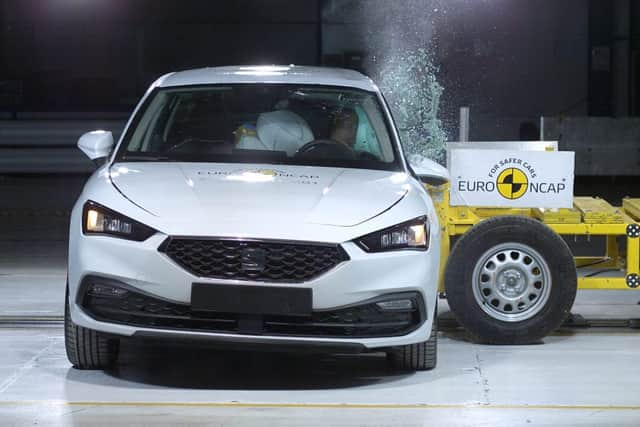New crash testing puts focus on protecting other vehicles


New crash test results have highlighted the challenges manufacturers face in protecting occupants of other vehicles, according to safety experts.
The latest round of Euro NCAP tests revealed five-star ratings for a number of new models but also revealed that some were “too aggressive” in a head-on collision.
Advertisement
Hide AdAdvertisement
Hide AdThe new “compatibility” test assesses the damage a tested car causes to a mobile deformable barrier representing another vehicle. Both the Isuzu D-Max and Land Rover Defender scored highly for their own occupant protection but were marked down for the threat they posed to the other vehicle.
The D-Max, which scored 11.2 out of 16 in the frontal impact test and 84 per cent for overall adult occupant protection, caused some “localised areas of high deformation” to the barrier, while the Defender’s “high mass and front structure makes it an aggressive partner to a colliding vehicle”, according to Euro NCAP’s rating. It scored 11.7 out of 16 and 85 per cent for adult occupant protection.


Euro NCAP’s secretary-general, Michiel van Ratingen, commented: “Poor crash compatibility between vehicles has been a problem for years. Now, in 2020, we have a frontal test which can assess how a vehicle performs in this regard and can penalise those cars that perform poorly. This is a first for safety assessment and should lead to better, more compatible designs in the future.”
Matthew Avery, head of research at testing specialist Thatcham Research added: “The new-for-2020 tests are really driving a requirement for increased performance and more aggressive cars like the Defender and D-Max are being identified and marked down as a result. The latest test results show some manufacturers are finding compatibility a challenge.”
While both vehicles were marked down for compatibility they were both among the latest models to be awarded an overall five-star rating for occupant protection and safety features. Both were praised for their standard safety technology and driver assistance systems, as was the Kia Sorento, which also achieved five stars despite “underwhelming” performance in the frontal offset crash.
The Audi A3 and Seat Leon, both of which are based on the VW Group’s MQB-II, also gained five stars, with the Leon being praised as one of the year’s best performers. It edged ahead of the Audi thanks to better compatibility results.


The electric Honda e was given four stars due to underperforming in adult occupant protection tests, although it performed better in child occupant and vulnerable road user protection.
The Hyundai i10 city car was the lowest-scoring in the last round of testing. It was bottom of the ratings in four adult occupant categories and its autonomous emergency braking was criticised for its limited abilities, earning the car a three-star rating.